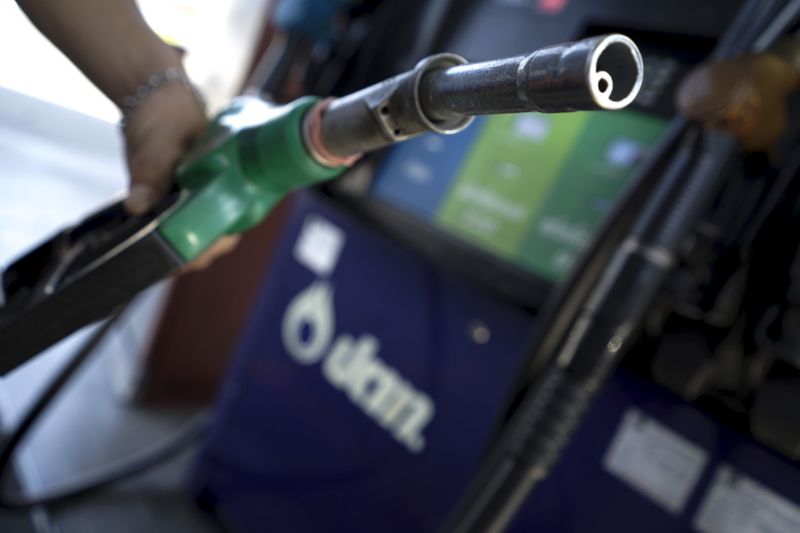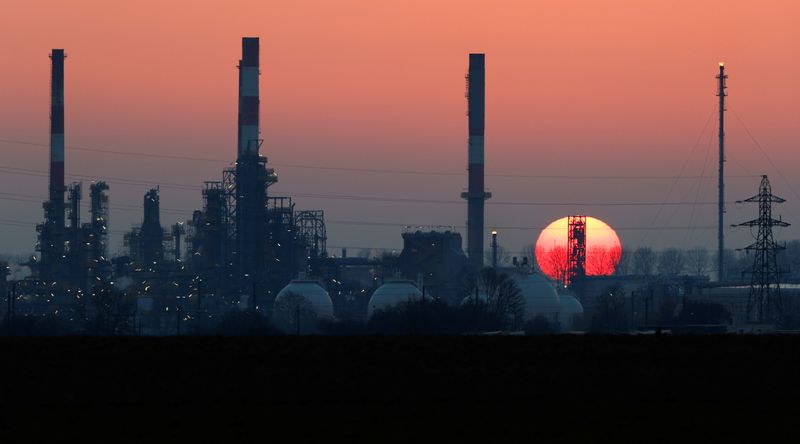NEW YORK (Reuters) – Oil prices rose more than 2% on Thursday on a weaker dollar and expectations that a crude glut would be short-lived due to a steep fall in U.S. fuel stocks and a resumption of operations by Texas refiners.
Brent crude oil futures for May settled up $1.73, or 2.6%, to $69.63 a barrel while U.S. West Texas Intermediate crude for April ended the session $1.58 or 2.5% higher, at $66.02.
“The complex has recovered back to above yesterday’s highs with major assistance from a weak dollar/strong equity combo,” Jim Ritterbusch, president of Ritterbusch and Associates said.
“We feel that the energy complex could remain in a stall well into next week with WTI bounded roughly by parameters of about $63 to $68 before any renewed up-spike.”
U.S. Treasury yields fell on Thursday as concern about a strong pick-up in inflation eased and focus turned to an auction of 30-year government debt. The dollar fell for a third straight day and was at its lowest level in a week against a basket of currencies.
Fewer than expected Americans filed new claims for unemployment benefits last week as an improving public health environment allows more segments of the economy to reopen.
A massive draw on U.S. gasoline stocks has also helped to boost oil prices, said Tamas Varga, senior analyst at PVM Oil Associates.
“(It) implies that refiners’ crude intake will keep growing, reversing the recent stock builds we have seen in the last three weeks due to Winter Storm Uri.”
U.S. gasoline stocks fell by 11.9 million barrels in the week to March 5 to 231.6 million barrels, the Energy Information Administration (EIA) said, compared with expectations for a 3.5 million-barrel drop.
Crude inventories, however, rose by 13.8 million barrels in the week to March 5 to 498.4 million barrels, compared with analysts’ expectations in a Reuters poll for an 816,000-barrel rise, as the nation’s oil industry continued to feel the effects of a winter storm mid-February that stalled refining and forced production shut-ins in Texas.
Still, the Organization of the Petroleum Exporting Countries said in a monthly report demand will rise by 5.89 million barrels per day (bpd) in 2021, or 6.5%, up slightly from last month. But the group cut its forecasts for the first half.
Globally, stocks also remain ample with crude oil in storage at major land and sea hubs rising last week, according to analysts and ship trackers.
As the pace of inoculations picks up, several states such as North Carolina and California have moved to relax COVID-19 restrictions.
(Additional reporting by Julia Payne and Jessica Jaganathan; editing by Emelia Sithole-Matarise, Chris Reese and Cynthia Osterman)






















